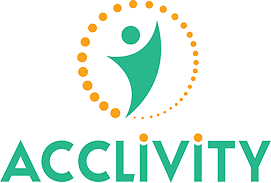In today’s digital age, social media has transformed the way people communicate and access information. For higher education institutions, this unprecedented connectivity presents both opportunities and challenges. While social media platforms offer universities a powerful tool to engage with students, alumni, and the wider community, they also expose institutions to reputational risks. In this blog post, we will explore the significance of reputation management in higher education and how universities can navigate the complexities of social media to maintain and enhance their standing in the digital era.
The Power of Social Media in Higher Ed
Social media platforms have become integral to the fabric of modern society, and higher education institutions are no exception to this trend. Through platforms like Facebook, Twitter, Instagram, LinkedIn, and YouTube, universities can effectively reach their target audience and communicate their mission, accomplishments, and activities. Social media allows institutions to foster a sense of community, build alumni networks, and showcase their academic and extracurricular offerings.
Reputational Risks in the Digital Age
While social media offers numerous benefits, it also introduces reputational risks for higher education institutions. One poorly managed post, a negative tweet, or a controversial video can spread like wildfire and damage an institution’s reputation in a matter of minutes. Moreover, online conversations and discussions about universities are constantly monitored by prospective students, parents, donors, and policymakers. Any negative sentiment can have far-reaching consequences, leading to declining enrollment numbers, reduced funding, and diminished trust in the institution.
Strategies for Effective Reputation Management
- Actively Monitor Social Media Channels: Implementing robust social media monitoring tools can help universities keep a close eye on mentions, sentiment, and trending topics related to their institution. This proactive approach allows for timely responses to potential crises and opportunities to engage with stakeholders positively.
- Transparent Communication: In the age of social media, transparency is key. When challenges arise, universities should address them head-on and be open about their efforts to improve. Honesty and authenticity can help build trust and credibility with the online community.
- Engage and Respond: Regularly engaging with followers and responding to comments and messages demonstrates a commitment to communication and fosters a sense of connection with the institution. This active engagement can also help correct misinformation and prevent negative narratives from gaining traction.
- Empower Advocates: Encouraging positive discussions and advocacy among students, alumni, and faculty can help counterbalance negative content. When satisfied stakeholders share their positive experiences, it can strengthen the institution’s reputation.
- Educate the Community: Providing guidelines and social media training for faculty, staff, and students can help promote responsible online behavior and reduce the risk of reputational harm caused by inadvertent posts or comments.
- Crisis Management Plan: Having a well-defined crisis management plan in place is crucial. This plan should outline the steps to be taken in case of a reputational crisis and include designated spokespersons, response protocols, and escalation procedures.
In the age of social media, reputation management has become a critical aspect of higher education. Universities must embrace social media as a powerful tool for communication while recognizing the potential risks it poses to their reputation. By adopting proactive strategies for monitoring, engagement, and crisis management, higher education institutions can safeguard their reputation, strengthen their online presence, and continue to thrive in the digital era. Effectively navigating the complexities of social media will not only enhance the institution’s image but also build lasting relationships with stakeholders in the long run.
Dr. Hill has helped hundreds of potential higher education prospects move their careers in the direction they want to go. She is available to meet with you and encourages you to reach out to her here. Visit her website at https://theacclivity.com/.

